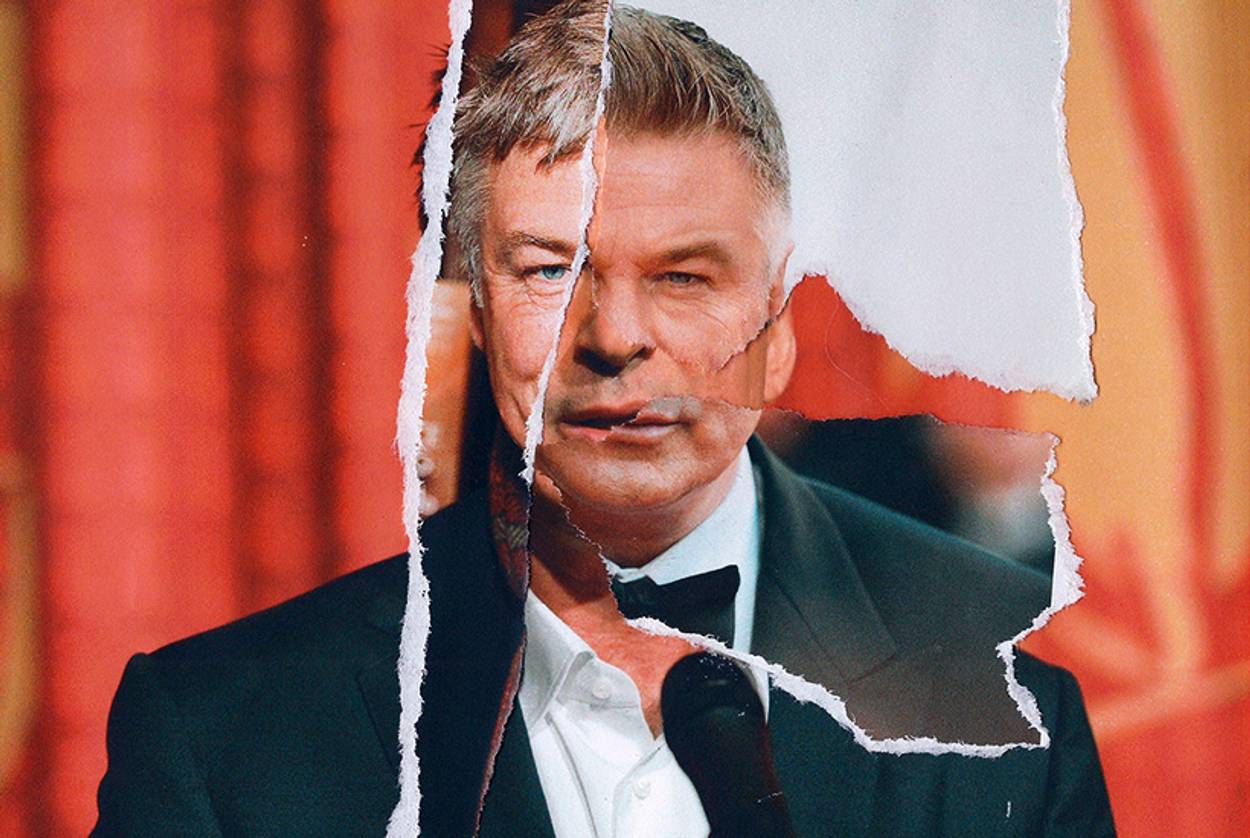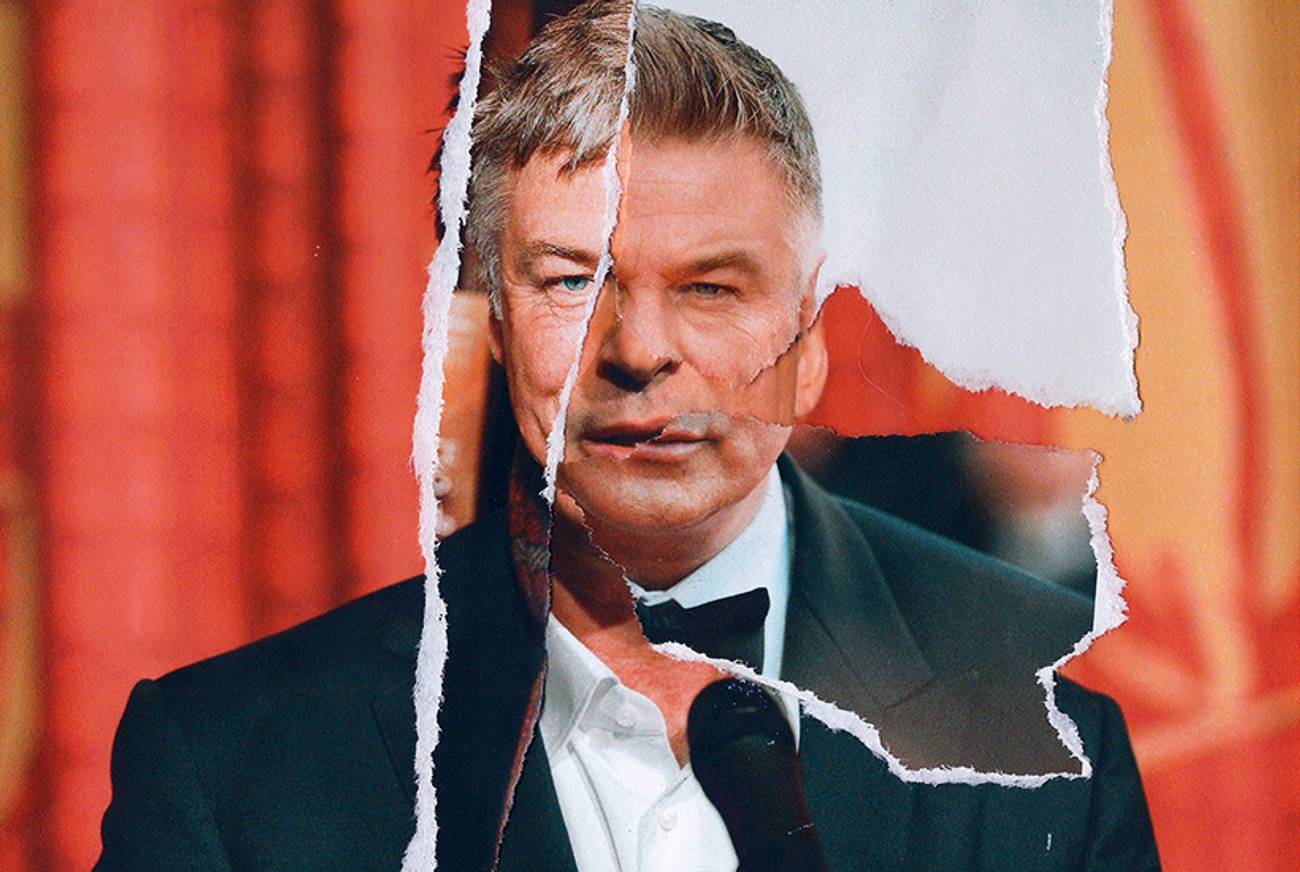Alec Baldwin Reminds Me of Something Else
Bullying and bullied, lacking in empathy, and oversensitive: How my feelings about the actor mirror my feelings for a country




I had the radio on in the car the other day, and the DJ (is that what they’re even called anymore?), on a break from cuing up his 15th Hotel California repeat of the day (it seems to be mandate in Los Angeles that the Eagles are always playing somewhere on the radio at every minute of the day), began to repeat the famous Howard Beale line from Network: “I’m as mad as hell and I’m not going to take it anymore!” This sentiment, my philosophical DJ-like-person mused, seemed to be more relevant today than ever before.
I’m inclined to agree with him, if for no other reason than that this week will go down in history as the one in which rich guys went berserk. Facebook mogul Sean Parker, whom you may remember as Justin Timberlake in The Social Network, became the latest billionaire to compare his critics to the Third Reich when media reports that his gazillion-dollar fairy-princess-themed wedding may have caused irreparable harm to ancient Californian redwood forests inspired him to compose a lengthy online rant comparing the press to “Nazi dogs” and Gawker publisher Nick Denton in particular to Goebbels’ Shih Tzu—a hideous slap in the face to all Shih Tzus, more of whom are named in the Righteous Among the Nations at Yad Vashem than any other toy breed. Filmmaker Spike Lee interrupted a question he was asked at talkback at the Pratt Institute to embark on an epic—and honestly, relatively accurate—rant about the flipside of gentrification in Fort Greene, despite the fact that he himself is in the process of unloading a $32 million townhouse on the Upper East Side.
And last, but certainly not least, we have Alec Baldwin, officially and furiously “retiring” from public life as he glares from the cover of this week’s New York magazine. The accompanying argument is 5,000 (!) words of petulance, narcissism, thin-skinned self-aggrandizement, rationalization, and occasional flashes of utter brilliance. Basically, Alec Baldwin has decided that we don’t deserve him. We stick cameras in his face and make his wife uncomfortable and put the pictures online and then assume that he said what it sounds like he said at any given moment instead of what he actually said, and as such we no longer are entitled to his wit and wisdom. (He’ll keep acting though, so don’t worry.) You can argue the finer points until a 30 Rock reunion comes together on NBC, but the gist is this: If you don’t like Alec Baldwin, he isn’t likely to change your mind. And if you like him, well, you might not anymore.
Not me. Alec Baldwin is my favorite actor. He’s been my favorite actor since the one-two punch of Working Girl and Beetlejuice. I’ve loved his action movies, his stage work, his SNL appearances (your Schweddy Balls, your “I’m Alec Baldwin, and I’m a handsome actor”), his later transformation into a character actor in prestige films. His portrayal of Jack Donaghy on 30 Rock was the inspiration for my coinage of the ersatz German word Wunschsvaterunmann, meaning “the phenomenon of wishing someone was both your husband and your father.” Alec Baldwin was Jon Hamm when Jon Hamm was still a glint in the eye of the casting director of Silk Stalkings, and no matter what he does or how much of a colossal jerk he is, I just can’t quite quit him.
And then it occurred to me: I feel exactly the same way about Alec Baldwin as I do about the State of Israel.
It makes a lot of sense, when you think about. If a person can be like a country, or vice versa, then they’re very much alike. (Before I go further, I should just make clear I’m really discussing the current government of Israel, which, arguably unfairly, has become increasingly synonymous with the country itself.) Simultaneously bullying and bullied, oversensitive to their own feelings and often utterly lacking in empathy to anybody else’s, and deeply paranoid—which doesn’t mean nobody is out to get them. The paparazzi are to Alec what that Katyusha rockets are to Eshkol—dangerous, indiscriminate, and incredibly unfair. Nobody should have to live bombarded by that kind of constant existential threat (and if you don’t believe the paparazzi is one, just look at poor Princess Diana), but the response they engender—indeed, are designed to engender—is so disproportionate as to preclude any possibility. The rest of the world, who weren’t imprinted at an early age with Baldwinism at Zionist summer camp (or something to that effect), don’t look at a millionaire movie star throwing a tantrum or American-backed nuclear power encroaching over previously agreed-on lines of demarcation and think, “Oh, that poor guy, he just needs to feel safe.” They think … well, you know what they think.
I don’t know what Alec Baldwin thinks of Netanyahu, or what Bibi thinks of Alec. I suspect that at least on a personal level they’d get along, but at the very least, perhaps they could learn from each other. Whether you’re a famous actor or the symbol of a country/head of state, you can’t expect the public to know you the way your friends do. People hear homophobic language and think you’re an unhinged homophobe; people see separatism and disproportionate response and think apartheid. It almost doesn’t matter what’s in your heart. In our visual, knee-jerk age, the only thing that matters is what you appear to be. So, maybe you could at least just try to smile for the camera once in a while, you rude, thoughtless little pig.
***
Like this article? Sign up for our Daily Digest to get Tablet Magazine’s new content in your inbox each morning.
Rachel Shukert, a Tablet Magazine columnist on pop culture, is the author of the memoirs Have You No Shame? and Everything Is Going To Be Great. Starstruck, the first in a series of three novels, is new from Random House. Her Twitter feed is @rachelshukert.
Rachel Shukert is the author of the memoirs Have You No Shame? and Everything Is Going To Be Great,and the novel Starstruck. She is the creator of the Netflix show The Baby-Sitters Club, and a writer on such series as GLOW and Supergirl. Her Twitter feed is @rachelshukert.